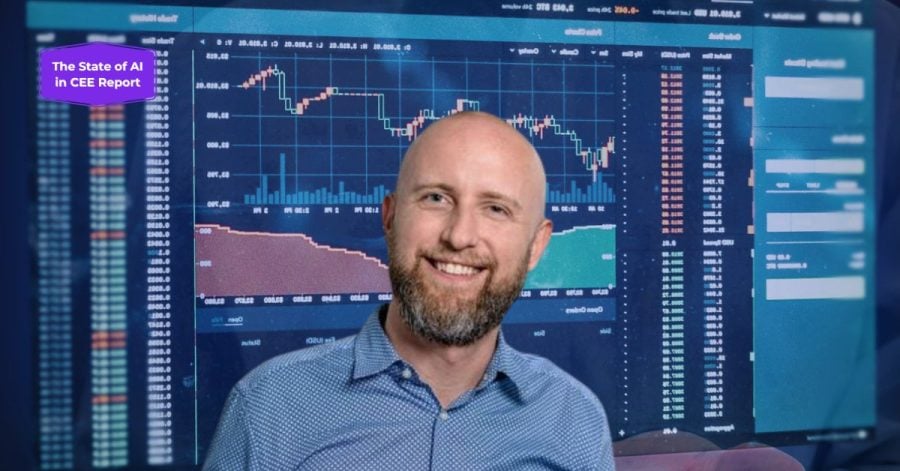What is driving the notable surge in interest in AI among investors? For financial expert and partner at investment firm SQ Capital, Ivan Jurisic, there is an increasing inclination of startups to either incorporate AI into their products or undergo complete pivots to align with the prevailing AI wave. In turn, this alerts investors to the potential opportunities in the segment.
In an interview with The Recursive, the experienced Croatian financial advisor also reflects on the profound impact of AI on strategic decisions within the startup ecosystem in Croatia, as well as on the significance of AI for investors seeking exposure to diverse markets, including public, private, and venture capital.
The following interview was conducted as a part of The Recursive’s “State of AI in CEE” report. Download the full report with insights from 40+ experts and an analysis of 900 AI product companies from CEE here.
The Recursive: How would you describe the current landscape of AI investment in the VC industry in CEE?
Ivan Jurisic: It’s clear there is strong interest in AI from the investors’ side and a lot of startups are either incorporating AI in their products or pivoting completely in the attempt to ride the AI wave. Of course, there are also a lot of new teams and interesting projects that are building something in the AI space.
Although we at SQ Capital are certain that significant value will be created in the AI space (unlike some of the prior “hot” sectors) we believe that investors have to discern between an AI feature and an AI product//company.
How would you compare that landscape to Western Europe, and what are the key trends you are observing in AI investment?
As money is flowing into CEE the gap is being filled quickly. We feel founders now start with similar opportunities as their colleagues in Western Europe. Perhaps the available AI solutions which are relatively easily accessible could level the field even further.
How has the AI investment landscape evolved over the past few years?
I would say that the main challenges regarding AI will be related to the regulatory uncertainty and to some extent scarcity of talent in the space – this is very clear when a great team like Mistral AI raises such a huge round so early (although this shows a couple of other points as well).
What types of AI technologies or applications do you see as most promising for investment?
I believe that the first wave of successful products will be in one of the areas where generative AI already seems to be increasing productivity in a big way – customer outreach, customer service, writing code, and R&D/prototyping. We will also probably see a lot of successful vertical market software products based on AI.
How many companies in your portfolio develop and sell AI-powered software or hardware products?
Our fund is in the first year of operation and has 6 portfolio companies at this moment. Out of this 6, one is a pure AI play, three of them are developing AI functionalities within their core product and one is a data infrastructure tool that will benefit from the AI boom.
How do you evaluate the AI capabilities of a startup when considering an investment?
As we are a sector agnostic investor we are not focused entirely on AI. We are actively searching for and looking at interesting deals in the space but not in a manner that differs from the way we approach other verticals.
What impact do you think AI regulations will have on the VC industry and AI startups?
I believe some form of regulation will be needed, just for standardization of the norms/framework of the industry. This can help build public trust and resolve issues regarding copyright infringement, data privacy and general ethical issues.
The worst scenario is if such legislation is not relatively standardized but differs significantly across the world.
Which factors will have the biggest impact to improve the outlook for AI-powered innovation in the CEE region?
Local entrepreneurial mentality has been changing for several years now, and this is probably the most important thing for progress in general. When it comes to startups in Croatia this may very well be attributed to the success stories of Infobip, Rimac, Photomath and the like. One may look no further than the college admissions and the obvious shift towards STEM.








